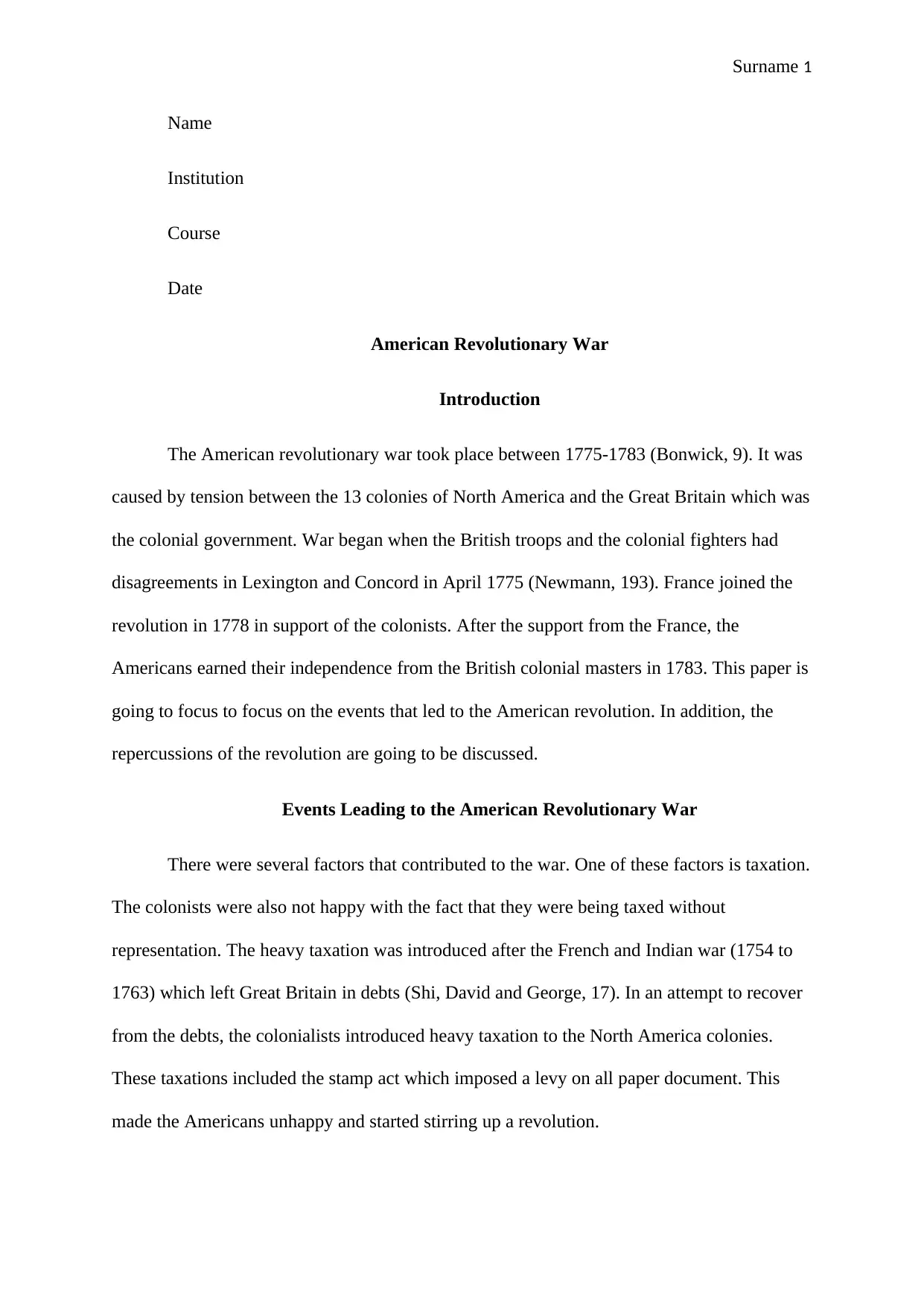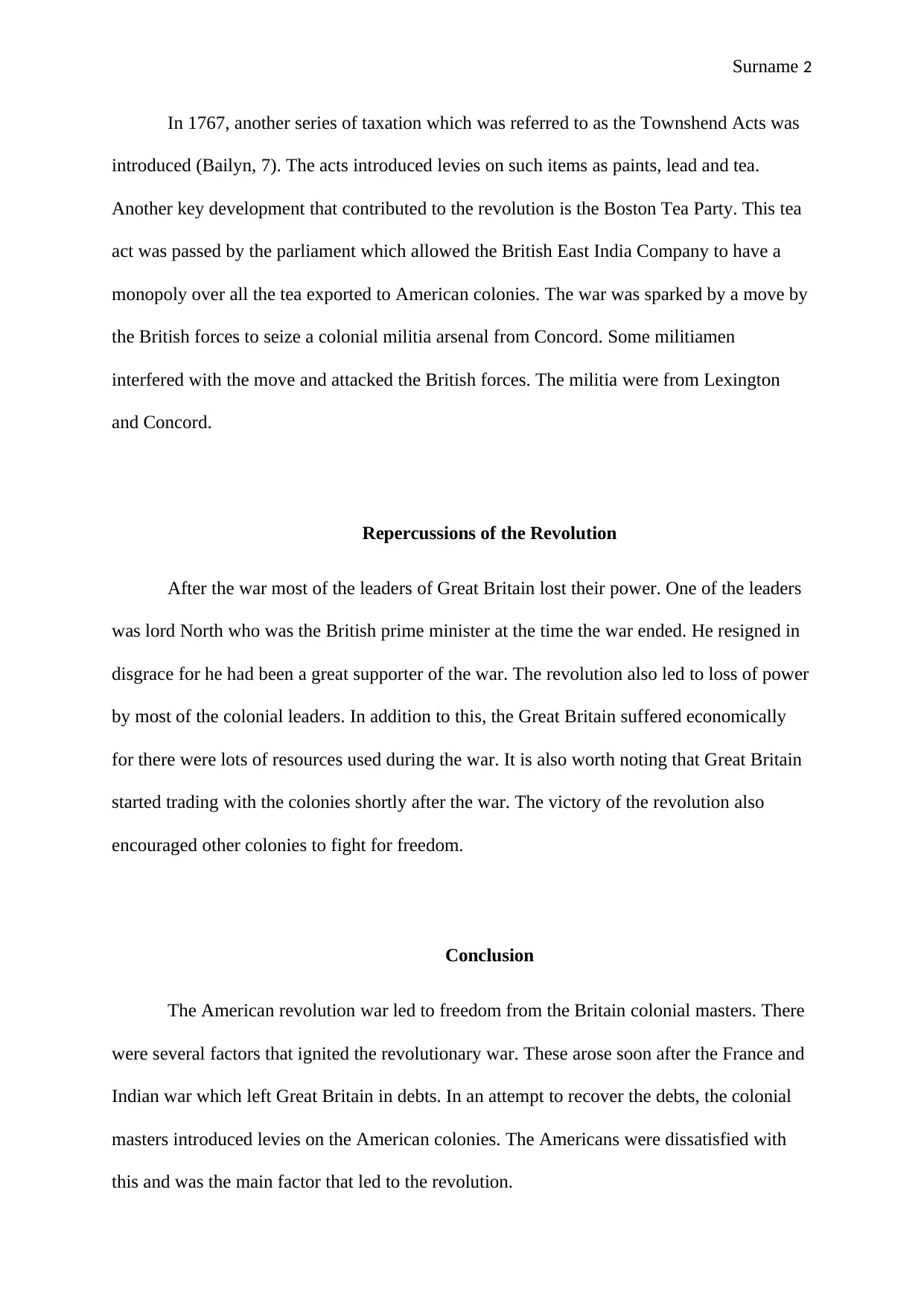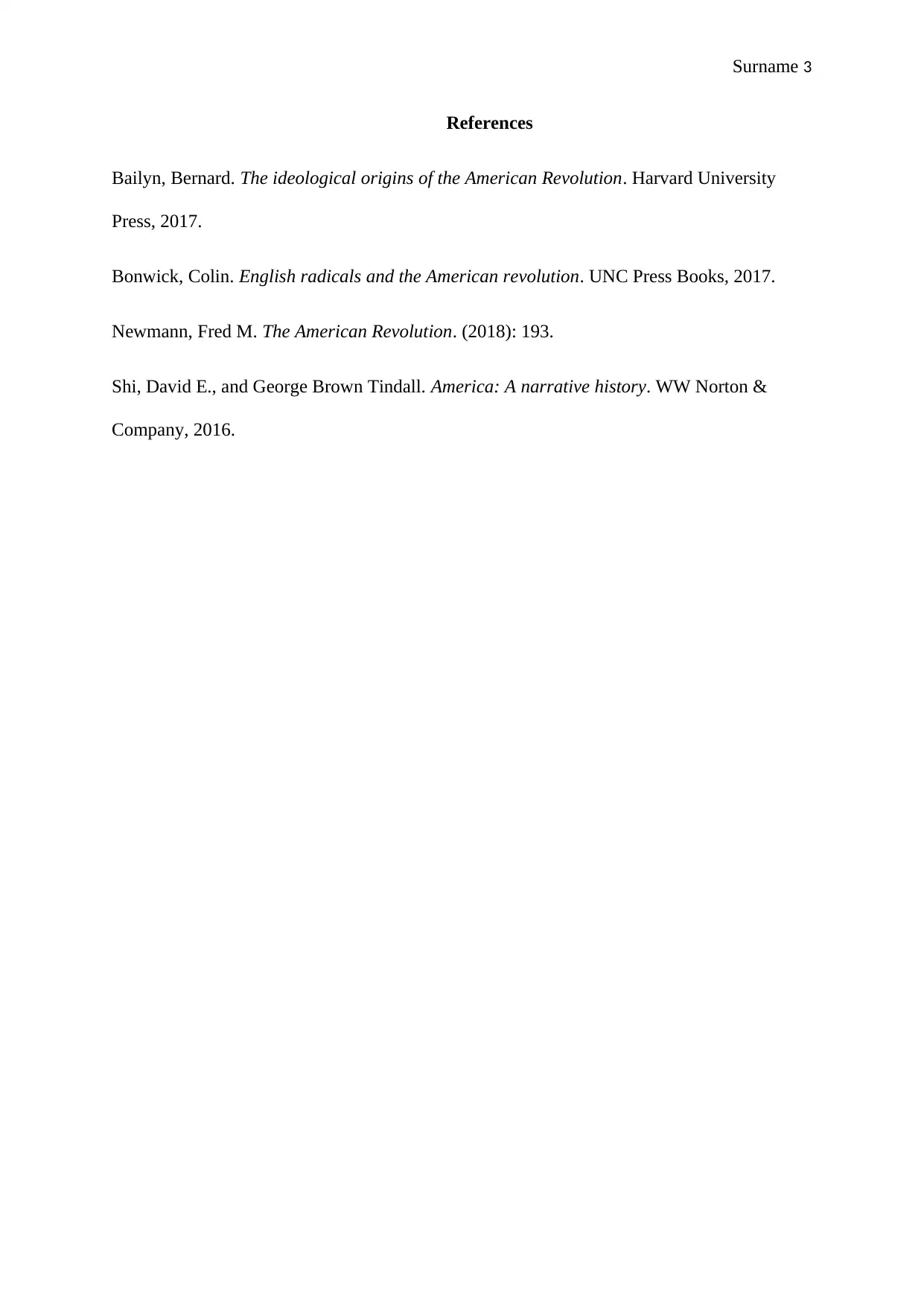Exploring the Causes and Repercussions of the American Revolution
VerifiedAdded on 2023/05/28
|3
|647
|318
Essay
AI Summary
This essay delves into the American Revolutionary War, examining the underlying tensions between the thirteen North American colonies and Great Britain that ignited the conflict from 1775 to 1783. It highlights key events such as taxation without representation, the Stamp Act, the Townshend Acts, and the Boston Tea Party, which fueled colonial discontent. The paper further discusses the repercussions of the revolution, including the loss of power for British leaders like Lord North, economic strain on Great Britain, and the inspiration it provided to other colonies seeking independence. Ultimately, the essay concludes that the American Revolution resulted from a culmination of factors, primarily the heavy taxation imposed by the British colonial masters after the French and Indian War, leading to the colonies' fight for freedom.
1 out of 3










![[object Object]](/_next/static/media/star-bottom.7253800d.svg)